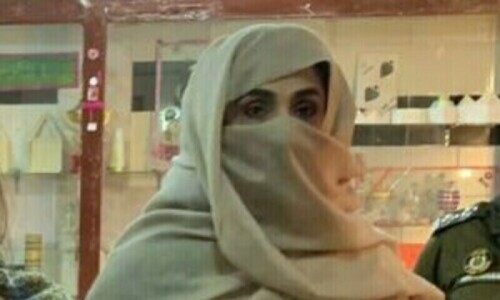LAHORE: Scholars and academics from prominent institutions around the world will gather at the Lahore University of Management Sciences (LUMS) from Dec 10 to 13 to remember late anthropologist Saba Mahmood, whose academic contributions to anthropology shifted global conversations on the Middle East, Muslim women, and non-western subjecthood.
Those interested in debates around politics, gender, philosophy, rights, and Islamic studies should consider attending the conference and email hssconferences@lums.edu.pk to register for it.
The conference, titled ‘Gender, Piety, Secularity: Conversations with Saba Mahmood (1962-2018’, marks five years since Professor Saba’s passing.
“She was a rare intellectual whose work was grounded in deep care for the politics of that day,” says Dr Ghazal Asif, an anthropologist and co-organizer of the conference.
Professor Saba was born and raised in Pakistan, and she studied architecture and urban planning before getting a PhD in anthropology from Stanford University. She joined the University of California at Berkley as a professor of anthropology in 2003. Professor Saba thought and acted globally and transformed her field of study, says Dr Ghazal, as such, she is an inspiration to many generations of Pakistani anthropologists.
Her first book titled Politics of Piety: the Islamic Revival and the Feminist Subject was published in 2005 around the time when post 9/11 hysteria had gripped the western world. Using an anti-imperialist approach, her work interrupted the dominant discourse which sought to dehumanize Muslims, and Muslim women, in particular.
Decades later, the ongoing turmoil in the Middle East once again raises pertinent questions around the non-western Muslim subject. Although she was a scholar of modern Egypt, Prof Saba’s work speaks to themes that are relevant to Pakistan.
The conference is a part of LUMS HSS Seminar Series. “We are trying to create a scholarly community with other universities in Pakistan, start new conversations and share Saba’s work with academics at home,” says co-organizer sociologist Dr Aman Jaffar.
The organizers have brought together academics from under-resourced universities in the country to engage with Prof Saba’s contributions. The young scholars will converse and engage with a range of academics from various disciplines whose work has been informed or influenced in some way by Prof Saba. Speakers include Humeira Iqtidar, Mayanthi Fernando, Noah Salomon, Rabia Nadir, Kamran Asdar Ali, Ali Usman Qasmi, Khalid Mahmood and others.
Historian Prof Shahzad Bashir of Brown University will give the keynote speech on the opening day. The next two days will feature classes and workshops, discussion panels on research inspired by Dr Saba’s work. The panels will feature topics such as: troubling secular frameworks; question of rights; law, secularism, and the pious subject; and reading Saba Mehmood in Pakistan’s context.
On the third day, the conference will end with a memorial for Prof Saba at Alhamra Arts Council where her family members and close friends will pay their respects.
We wanted to re-introduce Prof Saba’s work to the cultural and intellectual life of Pakistan, the organizers shared. She offers substantive original openings and arguments into how to think about feminism in the context of Muslim women. Prof Saba looks at how to rethink the agency of Muslim women in society, how they live their lives and act politically. Her work urges scholars to consider seriously how Muslim women conceive of themselves and their place in the world.
Through a political reading of Muslim women’s everyday life in Egypt, her work highlights the need to take seriously what women say about themselves. Her later work examines the role of secularism in the modern state. A far cry from the idea that secularism marks separation of church and state, her work shows the ways in which secularism becomes a tool of state’s sovereign power.
Prof Saba Mahmood combined the roles of teacher, public intellectual, and scholar and her work spoke of her political commitments. Later she took a break from her academic work to advocate for the Palestinian cause. “She cared to make scholars think differently,” says Dr Aman. “This conference is a way to remember and celebrate Dr Saba’s work as a pioneer and scholar of global distinction.”
Published in Dawn, December 10th, 2023












































Dear visitor, the comments section is undergoing an overhaul and will return soon.